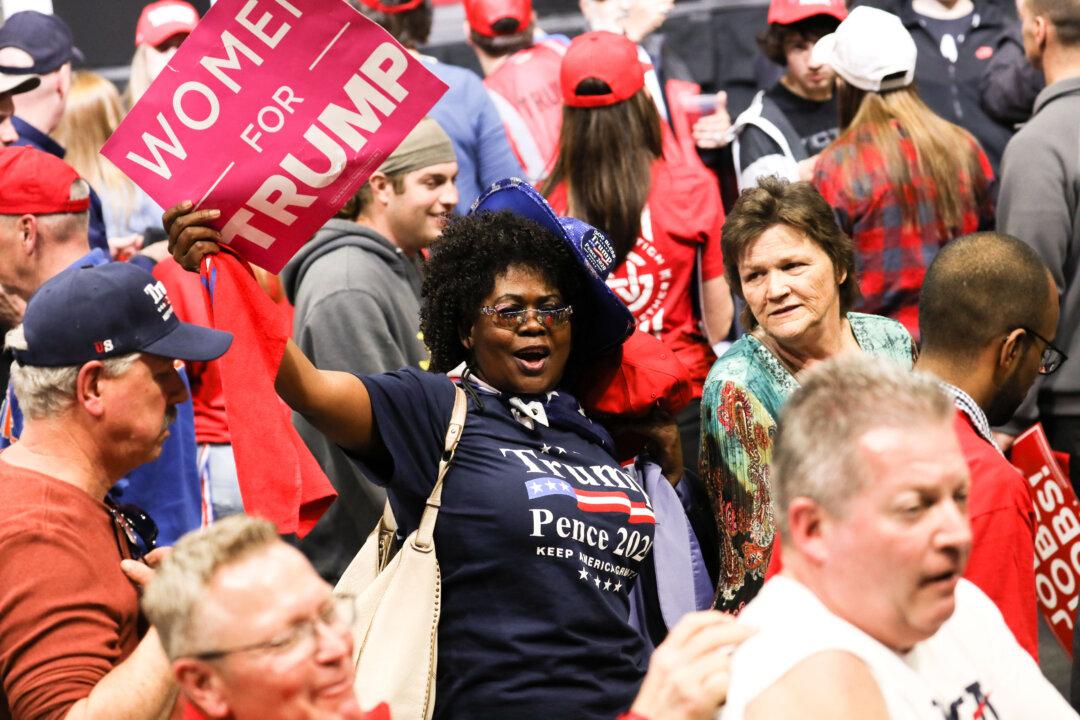Approval of President Donald Trump rose to 34.5 percent among black registered voters in a recent Emerson poll.
The number is notable because only 8 percent of blacks voted for Trump in 2016, according to Cornell University’s Roper Center.


Approval of President Donald Trump rose to 34.5 percent among black registered voters in a recent Emerson poll.